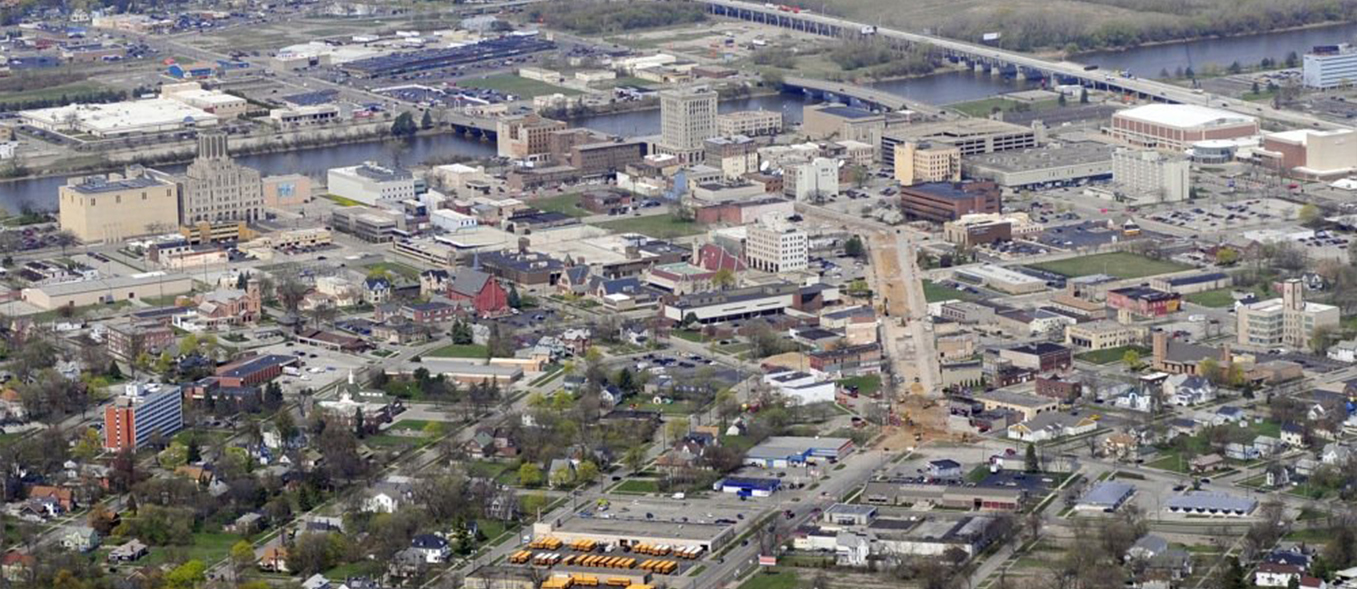Infrastructure & Maps
Saginaw County has an intermodal infrastructure network that features interstate highway connections, four railroad companies, an international airport, two airline carriers that connect to major national hubs, and numerous port facilities that link with the St. Lawrence Seaway.
Location Advantages
Businesses located in Saginaw County can reach half of the US and Canadian markets in 500 miles or 805 kilometers.
Through Saginaw County, businesses have access to Lake Huron, the Saginaw Bay and Saginaw River, along with the second largest seaport in Michigan.
Highway Interstate 75 bisects Saginaw County as well as the country, with linkage to the Canadian and Mexican markets. Eight major state highways also pass through the county providing direct links to all of Michigan’s major cities as well as northern vacation destinations.
Class I rail transit is available for the U.S., Canada and Mexico connecting to CSX Transportation Inc. from regional carriers, such as Saginaw Bay Southern & Lake State Railway, provide interstate rail service.
MBS International Airport is serviced by Delta and United airlines and the link to major hubs in Detroit, Chicago, New York, Minneapolis and Atlanta. MBS features a new $55 Million 75,000 sq. ft. terminal, and is home to Dow’s private hangars. Additional charter and fixed wing base services are provided by Harry W. Browne Airport in Buena Vista Charter Township and the William Tiny Zehnder Field in Frankenmuth.
The Saginaw Transit Authority Regional Services (STARS) is a public bus transportation system for the Saginaw Area, which travels about 1.5 million miles per year and operates daily, including Saturdays. Greyhound Bus is the largest provider of intercity bus transportation and includes a Downtown Saginaw connection.
The Saginaw River shipping channel provides linkage from commercial port facilities in the county to the St. Lawrence Seaway and ultimately to the Atlantic Ocean in three days. The Saginaw River is the State of Michigan’s eighth largest port by cargo volume with about 4.6 million tons of river commerce annually, according to the Michigan Department of Transportation.






